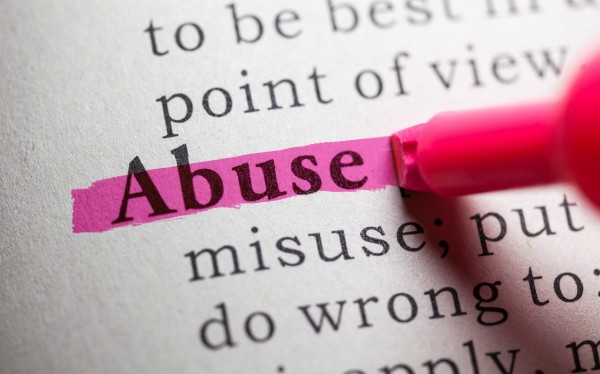
Training gaps leave too many practitioners unable to identify and respond to child sexual abuse, an expert body has warned in response to the Independent Inquiry into CSA (IICSA).
The Centre of expertise on child sexual abuse (CSA Centre) said the inquiry’s publication needed to occasion a shift from expecting children to disclose abuse to investing in the knowledge, skills and confidence of social workers and fellow professionals.
Among the many findings of its final report, published last week, IICSA concluded that there had been “too little emphasis on the complex and highly skilled work of child protection” and too little focus on it within multi-agency arrangements.
Alongside its headline recommendation of introducing mandatory reporting by professionals of CSA, the inquiry called for the creation of Child Protection Authorities in England and Wales that would be repositories of expertise on child protection and tasked with improving practice, advising governments on policy and, where necessary, inspecting institutions.
Welcoming last week’s report, CSA Centre director Ian Dean said the inquiry had “demonstrated an important commitment to shining a light on the sexual abuse of children and amplifying victim and survivor voices, to draw attention to the harm that society has averted its gaze from for far too long”.
Dean said honouring victims’ experience meant using the inquiry’s findings – alongside those of the Independent Review of Children’s Social Care and the Child Safeguarding Practice Review Panel’s review into the murders of Arthur Labinjo-Hughes and Star Hobson – “to deliver a joined-up response to prevent abuse and improve professionals’ capacity to identify and respond to concerns”.
‘Too many lack knowledge and understanding’
The CSA Centre, which is funded by the Home Office, carries out research and produces practice guidance, for example, on areas such as addressing harmful sexual behaviour, sibling sexual abuse, disclosure and supporting parents whose children have been abused.
Dean added: “We must also address the absence of and inconsistency across data and professional training on child sexual abuse; leaving too many lacking the knowledge and understanding to recognise the signs of abuse, and the confidence to respond robustly. We need to move away from expectations that children can tell us what is happening, and invest fully in building knowledge, skills and confidence around sexual abuse for all those working with children, be that social workers, teachers, police officers, health professionals and beyond.”
The inquiry also urged improvements in the availability of data on CSA through the creation of a single dataset covering England and Wales, including information on the characteristics of victims and alleged perpetrators, factors that make victims more vulnerable to CSA or child sexual exploitation and the settings and contexts in which abuse occurs.
Giving its response to the inquiry, Association of Directors of Children’s Services president Steve Crocker described this proposal as “broadly helpful”.
“We know that greater action is needed to tackle the social and moral issues surrounding the root causes of abuse and exploitation, as is the need to tackle the casual acceptance of degrading and over sexualised representations of children and young people in our society today,” he added.
Praise for survivors’ bravery
Crocker praised the “bravery and courage” of the 6,200 victims and survivors the inquiry heard from, adding that their voices “must be heard as we reflect on the report and its recommendations”, a point echoed by the British Association of Social Workers.
BASW said it supported the inquiry’s recommendations to set up a redress scheme, and to provide specialist therapeutic support for victims and survivors, as well as its proposed ban on the use of pain compliance methods of restraint on young people in custody.
Both BASW and the ADCS said they would now consider the inquiry’s recommendations in detail, including the proposed introduction of mandatory reporting.
This would require “mandated reporters” – people whose roles brought them into close contact with children – to be under a duty to report child sexual abuse to the relevant local authority or the police, whenever they receive a disclosure from a victim or perpetrator, witness CSA or observe recognised indicators of the crime
Like the CSA Centre, Crocker, for ADCS, linked the report’s findings to those of the care review and the inquiry into Arthur and Star’s murders, to which the Department for Education is due to report before the end of the year. This compares with a timescale of six months from now for the government to respond to IICSA.

ADCS president Steve Crocker (credit: ADCS)
Crocker added: “The sector is in the midst of significant reform following a number of reviews and national reports with various recommendations for government. It is therefore important that any further reforms put in place are clearly linked to those already in train, such as those of the Independent Review of Children’s Social Care.”
In its response, the National Children’s Bureau raised concerns about the prospects for change in the wake of the inquiry because of the current pressures on children’s services and the prospects for further cuts, in the light of government efforts to repair the public finances.
Children’s workforce ‘on its knees’
“At the heart of these failings was an inability or an unwillingness to listen to what children were saying,” said Anna Feuchtwang, the bureau’s chief executive.
“But these are not just the failings of the past. As children’s lives become more complex, there are even greater risks. Yet the child protection system has never been more fragile – a children’s workforce on its knees, the potential for further cuts to services that keep children safe, and rising deprivation.
“The government’s first priority must be to assure the many victims that they have been heard, and that despite the current political instability this inquiry will lead to real change.”


 Family help: one local authority’s experience of the model
Family help: one local authority’s experience of the model  ‘I spent the first three months listening’: how supportive leadership can transform children’s services
‘I spent the first three months listening’: how supportive leadership can transform children’s services  How senior leaders in one authority maintain a culture of excellence
How senior leaders in one authority maintain a culture of excellence  How staff support ensures fantastic outcomes for children and families
How staff support ensures fantastic outcomes for children and families  Workforce Insights – showcasing a selection of the sector’s top recruiters
Workforce Insights – showcasing a selection of the sector’s top recruiters 

 Facebook
Facebook X
X LinkedIn
LinkedIn Instagram
Instagram
Comments are closed.